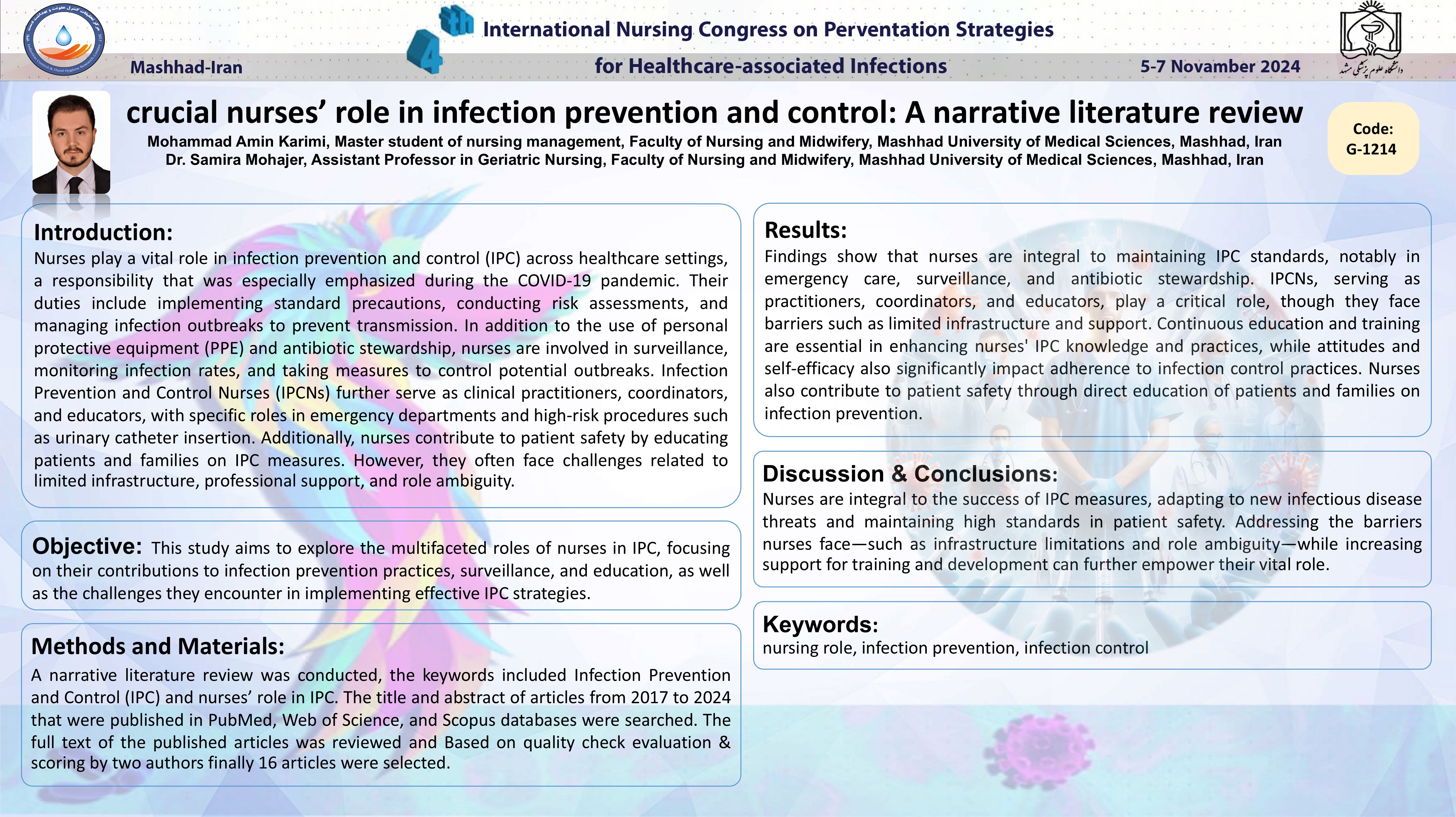نقش مهم پرستاران در پیشگیری و کنترل عفونت: یک مرور متون روایی
کد: G-1214
نویسندگان: Mohammad Amin Karimi © ℗, Dr. Samira Mohajer
زمان بندی: زمان بندی نشده!
دانلود: دانلود پوستر
خلاصه مقاله:
خلاصه مقاله
Background: Nurses play a vital role in infection prevention and control (IPC) across healthcare settings, a responsibility that was especially emphasized during the COVID-19 pandemic. Their duties include implementing standard precautions, conducting risk assessments, and managing infection outbreaks to prevent transmission. In addition to the use of personal protective equipment (PPE) and antibiotic stewardship, nurses are involved in surveillance, monitoring infection rates, and taking measures to control potential outbreaks. Infection Prevention and Control Nurses (IPCNs) further serve as clinical practitioners, coordinators, and educators, with specific roles in emergency departments and high-risk procedures such as urinary catheter insertion. Additionally, nurses contribute to patient safety by educating patients and families on IPC measures. However, they often face challenges related to limited infrastructure, professional support, and role ambiguity. Objective: This study aims to explore the multifaceted roles of nurses in IPC, focusing on their contributions to infection prevention practices, surveillance, and education. Method: A narrative literature review was conducted, the keywords included Infection Prevention and Control (IPC) and nurses’ role in IPC. The title and abstract of articles from 2017 to 2024 that were published in PubMed, Web of Science, and Scopus databases were searched. The full text of the published articles was reviewed and Based on quality check evaluation & scoring by two authors finally 16 articles were selected. Results: Findings show that nurses are integral to maintaining IPC standards, notably in emergency care, surveillance, and antibiotic stewardship. IPCNs, serving as practitioners, coordinators, and educators, play a critical role, though they face barriers such as limited infrastructure and support. Continuous education and training are essential in enhancing nurses' IPC knowledge and practices, while attitudes and self-efficacy also significantly impact adherence to infection control practices. Nurses also contribute to patient safety through direct education of patients and families on infection prevention. Conclusion: Nurses are integral to the success of IPC measures, adapting to new infectious disease threats and maintaining high standards in patient safety. Addressing the barriers nurses face—such as infrastructure limitations and role ambiguity—while increasing support for training and development can further empower their vital role.
کلمات کلیدی
nursing role, infection prevention, infection control
